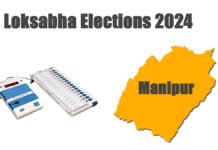
The media industry is facing a crisis of credibility and trust as political news dominates the headlines and airwaves. While political news is important for informing citizens and holding leaders accountable, too much of it can have negative consequences for the media sector and the public.
One of the main challenges is the rise of partisan media outlets that cater to specific ideological audiences and often present biased or misleading information. These outlets can create echo chambers and polarize public opinion, making it harder to find common ground and solve problems. They can also undermine the credibility of independent and professional journalism, which is essential for a healthy democracy.
Another challenge is the increasing pressure on media outlets to attract and retain audiences in a competitive and fragmented market. This can lead to sensationalism, clickbait, and outrage-driven coverage that exploits people’s emotions and prejudices. Such coverage can erode public trust in the media and fuel cynicism and apathy among citizens. It can also distract from other important issues that affect people’s lives, such as health, education, environment, and culture.
A third challenge is the growing threat of violence and harassment against journalists and media outlets that report on political issues. Journalists who expose corruption, human rights abuses, or other sensitive topics can face intimidation, lawsuits, arrests, or even murder. These attacks can have a chilling effect on press freedom and deter journalists from pursuing critical stories. They can also deprive the public of vital information and weaken accountability mechanisms.

The media industry needs to address these challenges and restore its role as a reliable source of information and a watchdog of power. Media outlets need to uphold high standards of accuracy, fairness, and ethics in their reporting and avoid sensationalism and partisanship. They also need to diversify their coverage and offer more in-depth and constructive stories that inform, educate, and engage the public. Media outlets need to collaborate with each other and with civil society organizations to protect press freedom and safety and to counter misinformation and propaganda. Finally, media outlets need to foster dialogue and trust with their audiences and respond to their needs and interests.












































